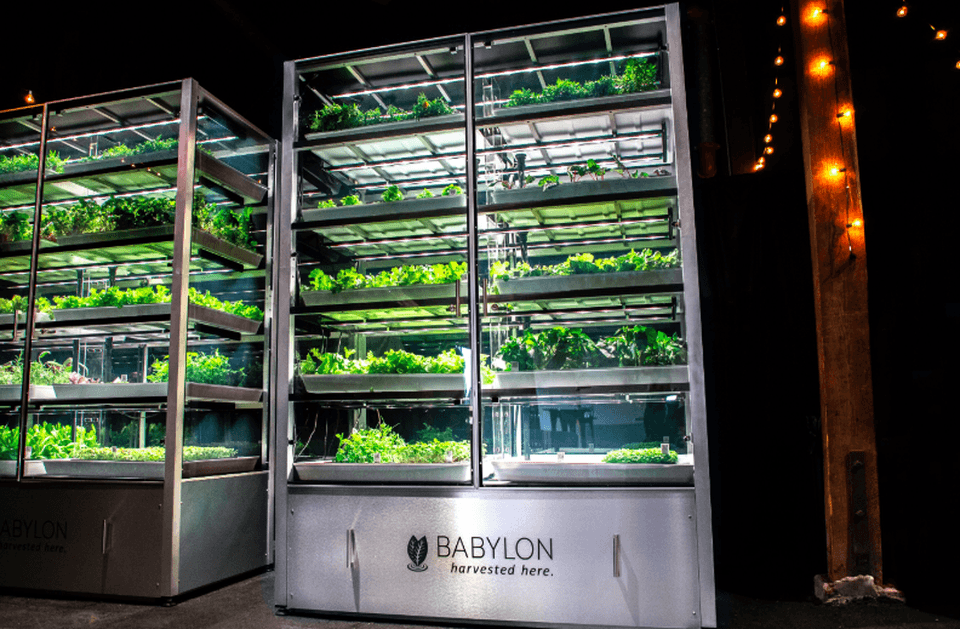Babylon Micro-Farms has raised a $2.3 million seed round led by Virginia-based early-stage investment group CIT GAP Funds and startup incubation group Plug and Play Ventures. The round also includes a $225,000 grant from the National Science Foundation. This brings the company’s total capital to $3 million.
Combining cloud-based technology and what it describes as “remotely-managed growing services,” the Charlottesville-based startup describes its technology as a plug-and-play hydroponics system for indoor ag. The hardware piece of its product is a 32” x 66” x 96” tall machine, according to Forbes. The company claims that its 15 square-foot micro-farms can produce as much produce as a 2,000 square-foot of outdoor farmland.
The software piece of the platform offers fine-tuned nutrient and irrigation systems that can be customized to almost any plant and LED lights take the place of sunlight. It currently offers 227 seed varieties.
With the software at the helm, the “smart farms” automatically dispense the appropriate amounts of water, nutrients, and light for each crop while also collecting data on growth that allows the system to make needed adjustments. These functions are performed remotely, cutting down on Babylon’s labor costs.
Babylon leases the machines on two-year contracts with fixed monthly fees. It handles the installation and provides growing supplies.
Because it’s designed for any experience level, Babylon markets the platform to foodservice operators at retirement communities, schools, and hospitality businesses so that they can grow their own produce on-site. Co-founder Alexander Olesen said in a statement announcing the funding that he expects to see thousands of Micro-Farm installations throughout North America in the next five years and more products with a similar function built around Babylon’s core technology.
So far, the company has been focused on product development and working with a shortlist of customers to vet its product including UVA, Dominion Energy, and local restaurants, schools, and country clubs, reports Forbes. Olesen and his co-founder Grant Smith expect to see sales outside Virginia early next year with plans to go nationwide soon after.
Controlled environment agriculture is having a renewed bout of interest, according to several metrics. Young, male farmers are flocking to the industry, according to a 2019 report from Agritecture Consulting and Autogrow, which also showed that the industry is diversifying beyond just leafy greens and herbs. AFN’s top 10 most-read stories in 2019 included three stories on the topic of indoor growing systems and celebrity chef Tom Colicchio told us why he’s betting on indoor ag and adding its produce to his menus.
Some question where the industry is heading amid challenges around the cost of production and finding precious real estate in well-established densely populated urban areas. But so far, indoor ag companies seem to be diversifying their business models in creative ways to find their specific path forward. Similar to Babylon’s reliance on an easy-to-use system, Freight Farms is offering ready-to-grow container farms while Bowery and BrightFarms are selling packaged salads to local retailers.





